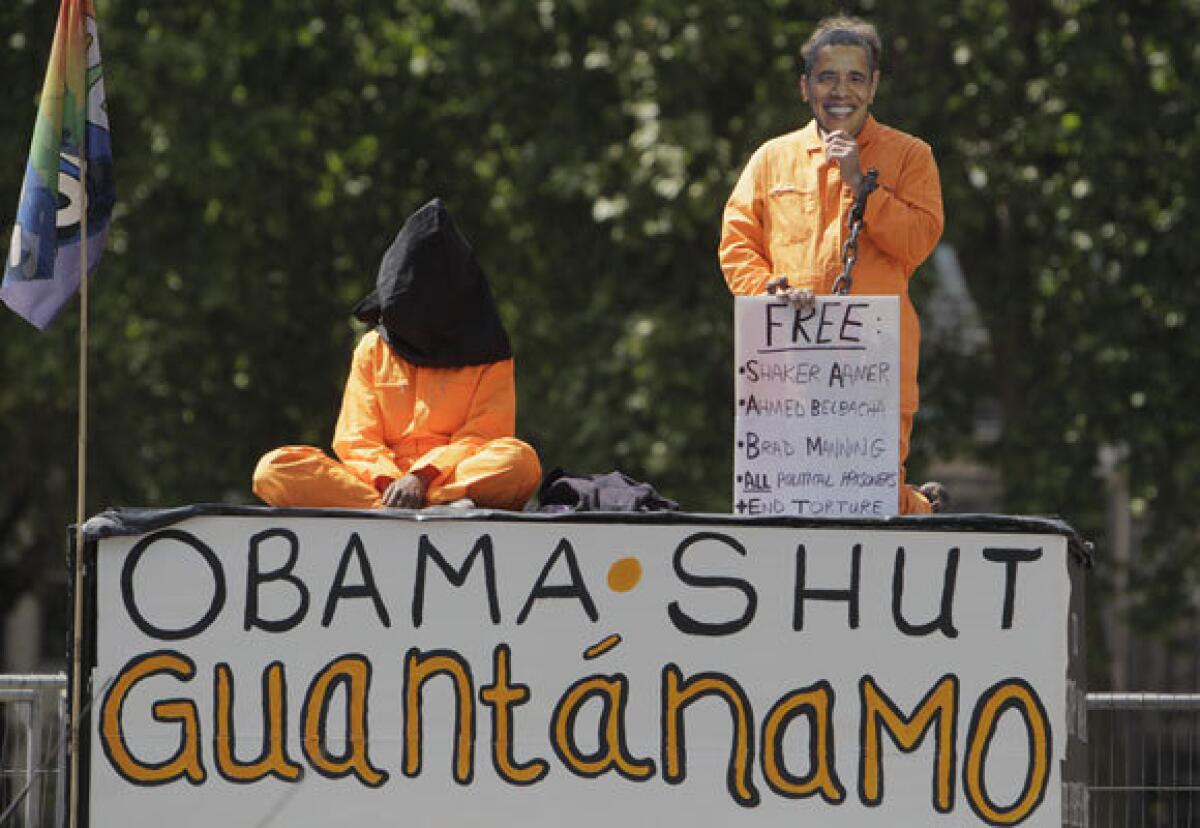Federal judge blocks National Defense Authorization Act provision

In a stunning turnaround for an act of Congress, a judge ruled Wednesday that a counterterrorism provision of the National Defense Authorization Act, an annual defense appropriations bill, is unconstitutional. Federal district Judge Katherine B. Forrest issued an injunction against use of the provision on behalf of a group of journalists and activists who had filed suit in March, claiming it would chill free speech.
In her decision published Wednesday, Forrest, in the Southern District of New York, ruled that Section 1021 of NDAA was facially unconstitutional â a rare finding â because of the potential that it could violate the 1st Amendment.
âPlaintiffs have stated a more than plausible claim that the statute inappropriately encroaches on their rights under the First Amendment,â she wrote, addressing the constitutional challenge.
Seven individuals, including Pulitzer Prize-winning former New York Times foreign correspondent Chris Hedges, MIT linguist Noam Chomsky and âPentagon Papersâ activist Daniel Ellsberg, had sued President Barack Obama, Defense Secretary Leon Panetta, and a host of other government officials, stating they were forced to curtail some of their reporting and activist activities for fear of violating Section 1021. That section prohibits providing substantial support for terrorist groups, but gives little definition of what that means. Environmental activists were also poised to join the suit if it expanded.
Judge Forrest also found that the language of Section 1021 was too vague, meaning it was too hard to know when one may or may not be subject to detention.
âIt was really unusual for a judge to declare unconstitutional a major provision of an act of Congress. I canât remember the last time that ever happened,â said Carl Mayer, co-counsel for the plaintiffs. âThe judge recognized that, but felt it was necessary to protect our constitution and to protect our democracy. Thereâs a lot of activists who understand how serious this is, but itâs less well known to the general public.â
The suit demands that Congress cut or reform this section of the law, which allows the U.S. military to indefinitely detain without charges anyone â including U.S. citizens â who may have âsubstantially supportedâ terrorists or their âassociated forces,â without defining what those terms mean. President Obama signed the bill on Dec 31, 2011, with a signing statement saying that the law was redundant of powers already provided to the government under the 2001 Authorization for Use of Military Force (passed after 9/11), and that these powers would not be used against U.S. citizens. The next administration may decide differently, however.
The plaintiffs made their cases very clear. Hedges had said that he could no longer interview some of his contacts in the Middle East because associating with these individuals might subject him to indefinite detention. Similarly, one of the founders of Occupy London, Kai Wargalla, discovered that the city of London Police Department had categorized her organization as âdomestic terrorism/extremismâ â among a list of groups that included Al Qaeda. Along with her work supporting Wikileaks, she said she felt primed for a visit from the rendition patrol.
Government attorneys had challenged the issue that any of these people had standing, but Forrest ruled that they did.
âThat goes right back to the 1st Amendment issue,â says plaintiff co-counsel Bruce Afran. âWhenever a person is put in fear of exercising their constitutional rights, then they have standing to challenge the statute. All of our plaintiffs said they have changed their journalistic activities in fear of being brought under the statute. Alexa OâBrien [Usdayofrage.org founder and Wikileaks supporter, and suit plaintiff] said she has decided against publishing certain interviews with Guantanamo detainees because she is fearful that that will be deemed âsubstantial supportâ under the law.â
âWhen you talk about the environmental groups, all the time theyâre branded rhetorically as terrorists, but what this law was doing was setting up a situation where they could actually be apprehended as terrorists without the benefit of a trial by jury,â Mayer adds.
The judgeâs decision is subject to appeal. Congress can also change the law; an effort to remove the language about indefinite detention was brought up as an amendment by Rep. Adam Smith (D-Wash.) in a bill to modify the NDAA on Thursday, but failed by a 182-238 vote.
RELATED:
Obama signs defense bill but balks at terrorism provisions
Unabomber billboard continues to hurt Heartland Institute
Activist sue Obama, others over National Defense Authorization Act






